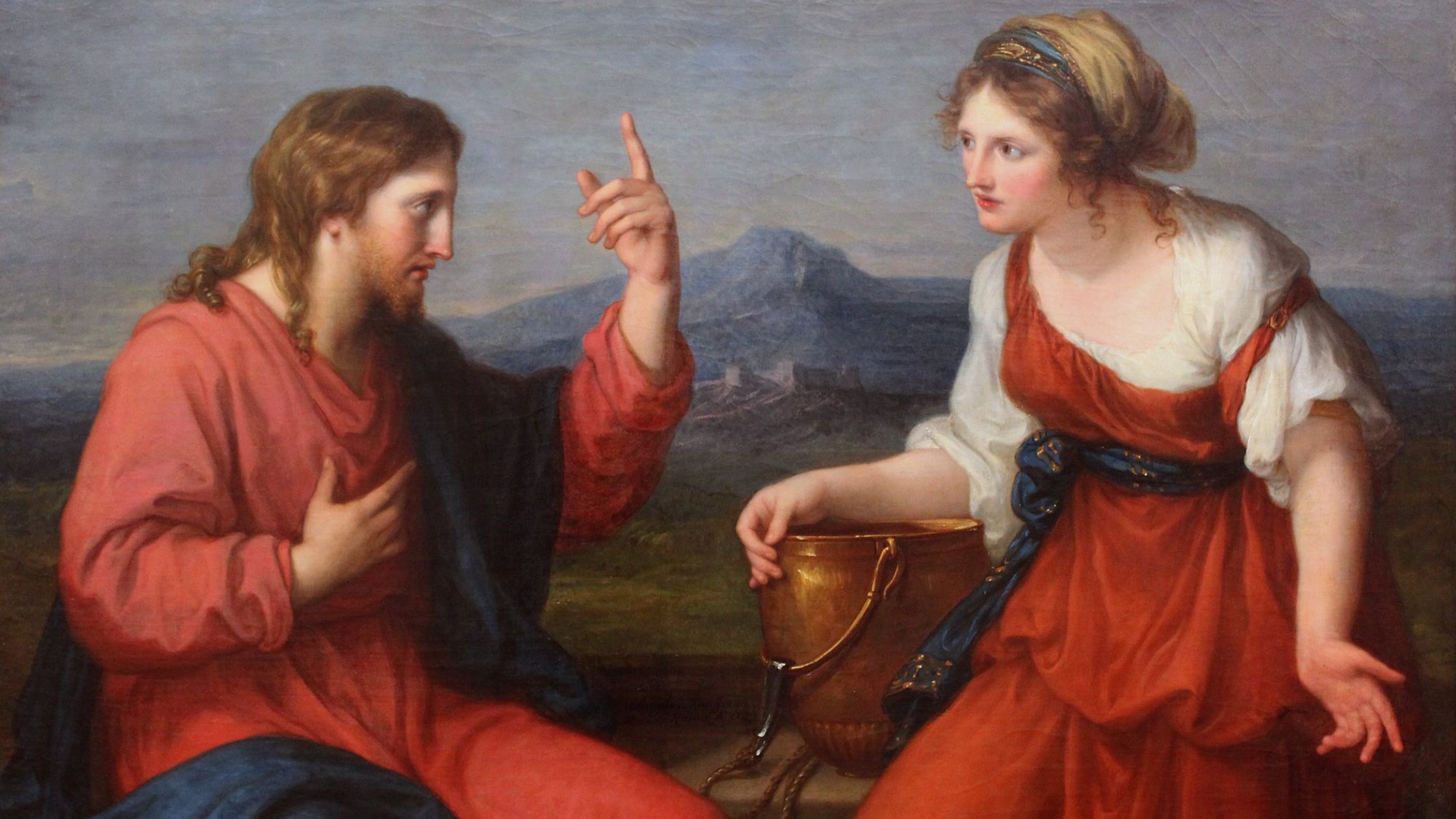The Gospel passage from today tells us of Jesus’s meeting with a Samaritan woman. Like the Samaritan woman, whoever personally encounters the living Jesus feels the need to talk about him to others, so that everyone might reach the point of proclaiming that Jesus “is truly the saviour of the world”. Generated to new life through Baptism, we too are called to witness the life and hope that are within us. If our quest and our thirst are thoroughly quenched in Christ, we will manifest that salvation is not found in the “things” of this world, which ultimately produce drought, but in he who has loved us and will always love us: Jesus, our Saviour, in the living water, that he offers us.
– Pope Francis
Collect for the Third Sunday of Lent
O God, author of every mercy and of all goodness, who in fasting, prayer and almsgiving have shown us a remedy for sin, look graciously on this confession of our lowliness, that we, who are bowed down by our conscience, may always be lifted up by your mercy. Through our Lord Jesus Christ, your Son, who lives and reigns with you in the unity of the Holy Spirit, God, for ever and ever.
Collecta
Deus, omnium misericordiarum et totius bonitatis auctor, qui peccatorum remedia in ieiuniis, orationibus et eleemosynis demonstrasti, hanc humilitatis nostræ confessionem propitius intuere, ut, qui inclinamur conscientia nostra, tua semper misericordia sublevemur. Per Dominum nostrum Iesum Christum Filium tuum, qui tecum vivit et regnat in unitate Spiritus Sancti, Deus, per omnia sæcula sæculorum.
Today’s Gospel: John 4:5-42
Third Week of Lent Reflection
Written by Carl E. Olson in Praying the Our Father in Lent
Themes: Commandments, Thirst, Faith, Hope, Love, Living Water, Healing, Cleansing, Deliverance
The readings during Lent often present us with encounters between God and man, and each of these sheds light on our own relationship with God. In Cycle C, there is the famous account of Moses and the burning bush (Ex 3:1ff), in which the banished shepherd engages in conversation with the God of Abraham, Isaac, and Jacob. God finally reveals his divine name, saying, “I AM WHO I AM,” before promising liberation for the people of Israel from captivity in Egypt.
Several chapters later we find, in the Old Testament reading for Cycle A, that the people are grumbling and murmuring. Having already forgotten the saving work of God, they are so angry that Moses fears they will stone him. How, we wonder, could they be so forgetful and ungrateful? Yet if we are honest we recognise that we aren’t any better: we’ve been baptised and liberated from sin, but we still complain. Perhaps we’ve had thoughts similar to what the people said to Moses: “But you had to lead us into this desert to make the whole community die of famine!” (Ex 16:3). Maybe we’ve also wondered, “Why did you ever make us leave Egypt?” (Ex 17:3). We find ourselves thinking with nostalgia about certain sins and temptations. Our faith wavers; our hope bends; our love wilts. We might even be tempted to blame God for our struggles with sin.
Then, in Cycle B, the Gospel is of Jesus cleansing the Temple with dramatic zeal before making the equally dramatic declaration: “Destroy this temple, and in three days I will raise it up” (see Jn 2:13-25). The Temple in Jerusalem, which was a place of worship and God’s dwelling place among his chosen people, was becoming a place of corrupt commodity. Likewise, our daily lives can become compromised and even corrupted; we can start to accept failure and even sin as the norm. There has to be a reckoning and a cleansing. Our bodies, which are temples of the Holy Spirit (1 Co 6:19-20), need to be once again offered to God as a “living sacrifice” (Rm 12:1), so we can love, know, and worship God with everything we are.
Lent, then, can and should reveal the fragility of our faith, the frailty of our hope, the feebleness of our love. We might be tempted to blame God for our struggles with sin; worse, we may long for the comfort of sinful habits. It may seem easier to return to the slavery we know than to journey in faith towards the kingdom of God. But the burning fire of God’s perfect love can cleanse us, opening our hearts to the joy and gratitude befitting true sons and daughters of God.
Prayer
Heavenly King, Comforter, Spirit of Truth, who art everywhere present and fill all things; Treasury of Blessings, and Giver of Life, come and dwell within us, cleanse us of all stain, and save our souls, O Gracious Lord. Amen.
“Heavenly King”, Byzantine Prayer
